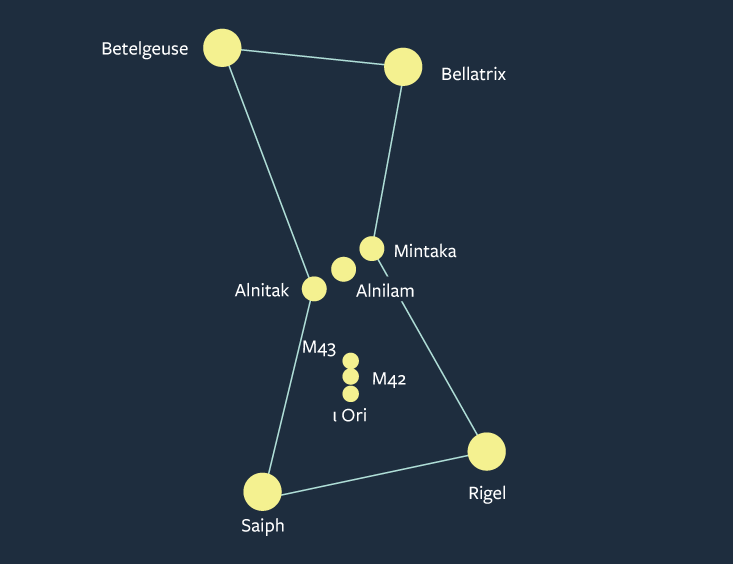Science
Related: About this forumA Quick Spin Around the Big Dipper
See how the night sky would appear from a different part of the galaxy.
BY SUMMER ASH
From our perspective here on Earth, constellations appear to be fixed groups of stars, immobile on the sky. But what if we could change that perspective?
In reality, it’d be close to impossible. We would have to travel tens to hundreds of light-years away from Earth for any change in the constellations to even begin to be noticeable. As of this moment, the farthest we (or any object we’ve made) have traveled is less than one five-hundreth of a light-year.
Just for fun, let’s say we could. What would our familiar patterns look like then? The stars that comprise them are all at different distances from us, traveling around the galaxy at different speeds, and living vastly different lives. Very few of them are even gravitationally bound to each other. Viewed from the side, they break apart into unrecognizable landscapes, their stories of gods and goddesses, ploughs and ladles, exposed as pure human fantasy. We are reminded that we live in a very big place.

more
http://nautil.us/issue/19/illusions/a-quick-spin-around-the-big-dipper
truebluegreen
(9,033 posts)Thanks for the link!
p.s. had no idea that the "double star" in the handle of the Big Dipper was actually 6 stars! Wow!
belzabubba333
(1,237 posts)truebluegreen
(9,033 posts)belzabubba333
(1,237 posts)truebluegreen
(9,033 posts)SheilaT
(23,156 posts)Christ, I can only recognize three constellations (Big Dipper, Little Dipper, and Orion) and, oh, sigh.
Oh, I can find the Pleiades, so long as Orion is in the sky.
n2doc
(47,953 posts)SheilaT
(23,156 posts)the University of Arizona offers an adult astronomy camp. It's usually just two days, sometimes three. I went last year and just loved it. Here's a link to their page: http://www.astronomycamp.org/pages/adultcamp.html
Dates for next year haven't been posted yet, but the adult camps are usually in May and October.
CrispyQ
(36,528 posts)And fun, too. Loved the Cassiopeia section. ![]()